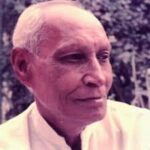Bhimsen Joshi: The Timeless Legend Who Redefined Indian Classical Music
Bhimsen Joshi was a legendary figure in Indian classical music, whose voice and dedication to the art have left an indelible mark on the world. As one of the most revered vocalists in Hindustani classical music, Bhimsen Joshi’s contributions not only transformed the landscape of Indian classical music but also brought it to the attention of global audiences. His life story is one of passion, perseverance, and deep spirituality, making him one of the most cherished icons in Indian cultural history.
Early Life and Education
Bhimsen Joshi was born on February 4, 1922, in the town of Gondavali, near the district of Solapur in Maharashtra, India. Coming from a modest background, Joshi’s early years were marked by financial struggles. However, it was his love for music that became his driving force. He was introduced to music at a very young age, and his natural talent was evident. Joshi’s family supported his musical aspirations despite the financial constraints, and he soon began formal training.
His initial musical training was under the guidance of Ustad Abdul Karim Khan, a renowned figure in classical music, followed by guidance from other distinguished teachers like Ustad Alladiya Khan and Pandit Rambhau Kundgolkar. Joshi studied the Kirana Gharana style of classical music, a school of thought that emphasizes melody and emotion. This style became the foundation for his unique voice and style that captivated audiences for decades.
Bhimsen Joshi’s Musical Journey
Bhimsen Joshi’s career in music began in the 1940s when he started performing in small towns and villages. His deep, soulful voice and command over ragas quickly made him a prominent figure in the classical music scene. Joshi was a maestro of the khayal and thumri genres of Hindustani classical music, known for his ability to evoke deep emotions through his singing.
One of the most defining features of Bhimsen Joshi’s music was his incredible control over his voice. His powerful voice combined with his unparalleled technical skills and deep understanding of ragas made his performances unforgettable. His renditions were always accompanied by intense emotion, which reflected his profound connection to the divine and his love for music.
In addition to his solo performances, Bhimsen Joshi also worked with several other legendary musicians, and his collaborations helped elevate the traditional music scene. His contributions to the classical music festivals across India, where he performed for decades, helped to make Hindustani classical music widely popular.
Impact on Daily Life and Society
Bhimsen Joshi’s influence on the music world and Indian society cannot be overstated. His life and work impacted individuals on both an emotional and intellectual level. Music lovers and aspiring vocalists were inspired by his dedication to his craft, his commitment to preserving traditional forms of music, and his constant push to innovate within classical music boundaries.
For the general public, Bhimsen Joshi’s performances were a source of spiritual awakening. His renditions, especially of devotional ragas, became a bridge between music and spirituality. Songs like “Mile Sur Mera Tumhara” and his bhajans brought listeners closer to divinity, and his voice became associated with both the soothing and uplifting powers of music.
His music also helped popularize Hindustani classical music among the younger generation, many of whom were previously more attuned to Bollywood music. By making classical music accessible and enjoyable to listeners from all walks of life, Joshi’s contribution to Indian culture was transformative.
Awards and Recognition
Bhimsen Joshi’s immense contribution to Indian classical music earned him numerous accolades and recognitions. Among the highest awards he received was the Bharat Ratna, India’s highest civilian honor, which was conferred upon him in 2008. Additionally, Joshi was also the recipient of the Padma Bhushan and Padma Vibhushan, making him one of the most honored musicians in the history of India.
These awards were not just a recognition of his vocal talent but also an acknowledgment of his dedication to promoting and preserving the rich tradition of Indian classical music. His recognition on national and international platforms helped solidify the global appeal of Hindustani classical music.
Daily Life and Work Ethic
Bhimsen Joshi was known for his disciplined and dedicated lifestyle. Despite his fame, he remained grounded and lived a life centered around his music and spiritual practice. His daily routine involved hours of practice, often starting early in the morning and continuing late into the evening.
Joshi’s work ethic was rigorous. He would spend hours mastering his craft, perfecting every note, and carefully studying the intricacies of ragas. His devotion to his music was not just about singing but about understanding the soul of each raga and ensuring that his performance resonated with both the audience and himself.
Even though he was a national icon, Joshi never became complacent. He continually honed his skills, seeking new ways to express his emotions through his music and refining his technique. This unrelenting drive to better himself as an artist became a source of inspiration for aspiring musicians everywhere.
Legacy and Significance
Bhimsen Joshi’s legacy is alive and well, and his influence continues to permeate every corner of the classical music world. His performances have inspired not just listeners but musicians who now strive to match his vocal prowess and emotive depth. Young musicians who have trained under his tutelage, or those who have studied his work, often cite him as their primary influence.
His influence is also felt in how Hindustani classical music is perceived today. Bhimsen Joshi’s contributions helped elevate the stature of classical music in India, making it more mainstream and respected across different demographics. Furthermore, his legacy has made a profound impact on future generations of musicians who understand that mastering classical music requires not just skill but also an innate connection to the art form.
Frequently Asked Questions (FAQs)
- What made Bhimsen Joshi unique in Hindustani classical music?
- Bhimsen Joshi’s powerful voice, his mastery of ragas, and his ability to infuse deep emotions into his singing made him a unique and unforgettable figure in Hindustani classical music.
- Which musical genres did Bhimsen Joshi specialize in?
- He was primarily known for his renditions of khayal and thumri, two major genres of Hindustani classical music, but also performed bhajans and devotional music.
- What was Bhimsen Joshi’s impact on Indian society?
- Joshi’s music had a transformative effect on Indian society, inspiring generations of listeners and musicians. His devotional music brought spiritual solace, while his classical performances elevated the stature of Indian classical music.
- What awards did Bhimsen Joshi receive?
- Bhimsen Joshi received numerous awards, including the Bharat Ratna, Padma Bhushan, and Padma Vibhushan, recognizing his immense contribution to the arts.
- How can one experience Bhimsen Joshi’s music?
- Bhimsen Joshi’s music can be found on various platforms such as YouTube, music streaming services, and through the many albums and performances that have been recorded throughout his illustrious career.
Conclusion
Bhimsen Joshi’s contributions to the world of music go far beyond his incredible vocal talent. His deep spirituality, his dedication to his craft, and his unwavering commitment to preserving Indian classical music have left a legacy that will inspire future generations. Through his voice, Bhimsen Joshi not only shaped the future of Hindustani classical music but also touched the hearts and souls of millions, making him a true icon in the world of music and beyond. His timeless music continues to resonate with people around the world, reminding us of the power of dedication, emotion, and the divine spirit inherent in every note.










